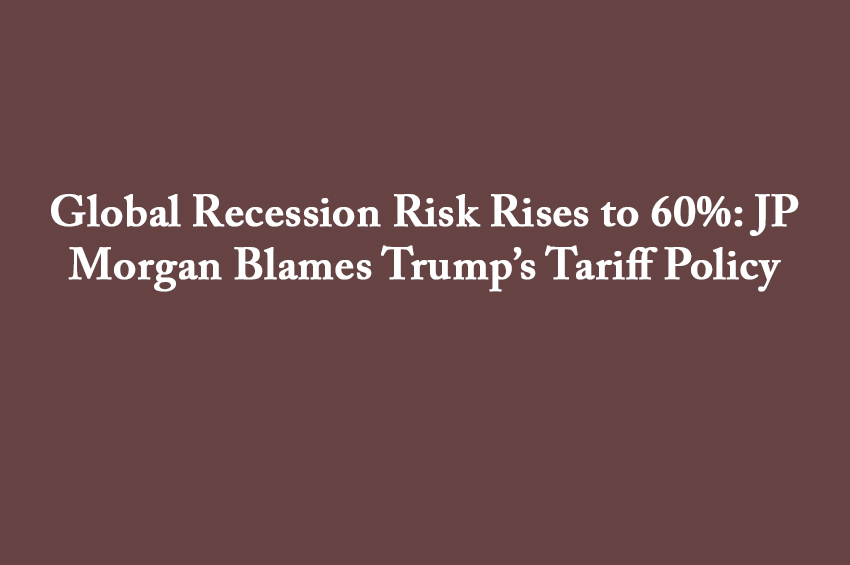Winning Bizness Desk
Mumbai. Ahead of the implementation of former US President Donald Trump’s new reciprocal tariff policy on April 9, global investment firm JP Morgan has increased its estimate of a potential global recession to 60%. Previously, this risk was pegged at 40%. According to JP Morgan, the hike is driven by anticipated disruptions in business confidence, supply chains, and global growth due to rising trade tensions, particularly between the US and China.
Other Global Firms Also Raise Alarm
Several other financial institutions have echoed these concerns. S&P Global has increased its US recession forecast to 30-35%, up from the earlier 25%. Goldman Sachs has raised its recession probability to 35%, from 20% previously. HSBC noted that the likelihood of a downturn is already visible in the equity markets, estimating the risk at 40%.
Massive Sell-off on Wall Street
The markets have responded sharply to the looming tariff war. The Dow Jones Industrial Average plunged more than 9% over two consecutive days. On April 4, it dropped by 2,231.07 points or 5.50%, closing at 38,314. A day earlier, it had fallen by 3.98%. The S&P 500 also witnessed steep losses, tumbling 322.44 points or 5.97% on April 4 to settle at 5,074, following a 4.84% drop the previous day. The Nasdaq Composite lost 1,050 points or 5.97% on April 4, after falling 5.82% on April 3. Over these two days, US equity markets lost nearly $5 trillion in market capitalization.
Retaliation from China Deepens Crisis
China has responded to the US tariffs with a matching 34% tariff on American imports, set to take effect from April 10. This follows Trump's recent policy that imposed similar duties on imports from China, Vietnam (46%), and others. The tit-for-tat tariff war has sparked fears of a broader global trade conflict. Investors are now increasingly worried about the impact on international trade flows and corporate earnings, triggering further sell-offs.
Key Drivers Behind Market Rout
Retaliatory Tariffs: China’s 34% tariff in response to US policy intensifies trade tensions.
Rising Costs and Falling Profits: Higher import duties mean costlier goods, squeezing corporate margins and reducing profitability.
Global Trade War Fears: Possibility of more countries imposing counter-tariffs, leading to trade disruptions and supply chain breakdowns.
Economic Slowdown Indicators: Slower consumption due to expensive goods, falling oil prices (US crude at $69.63/barrel), and weak investor sentiment all point to a potential economic slowdown.
In Nutshell
1. JP Morgan raises global recession risk to 60% due to Trump's tariff move.
2. S&P Global, Goldman Sachs, and HSBC also warn of increasing recession chances.
3. Dow Jones, Nasdaq, and S&P 500 fall sharply; $5 trillion in market value erased in 2 days.
4. China hits back with 34% retaliatory tariffs, worsening global trade tension.
5. Higher costs, weak demand, and investor panic deepen market sell-off.


